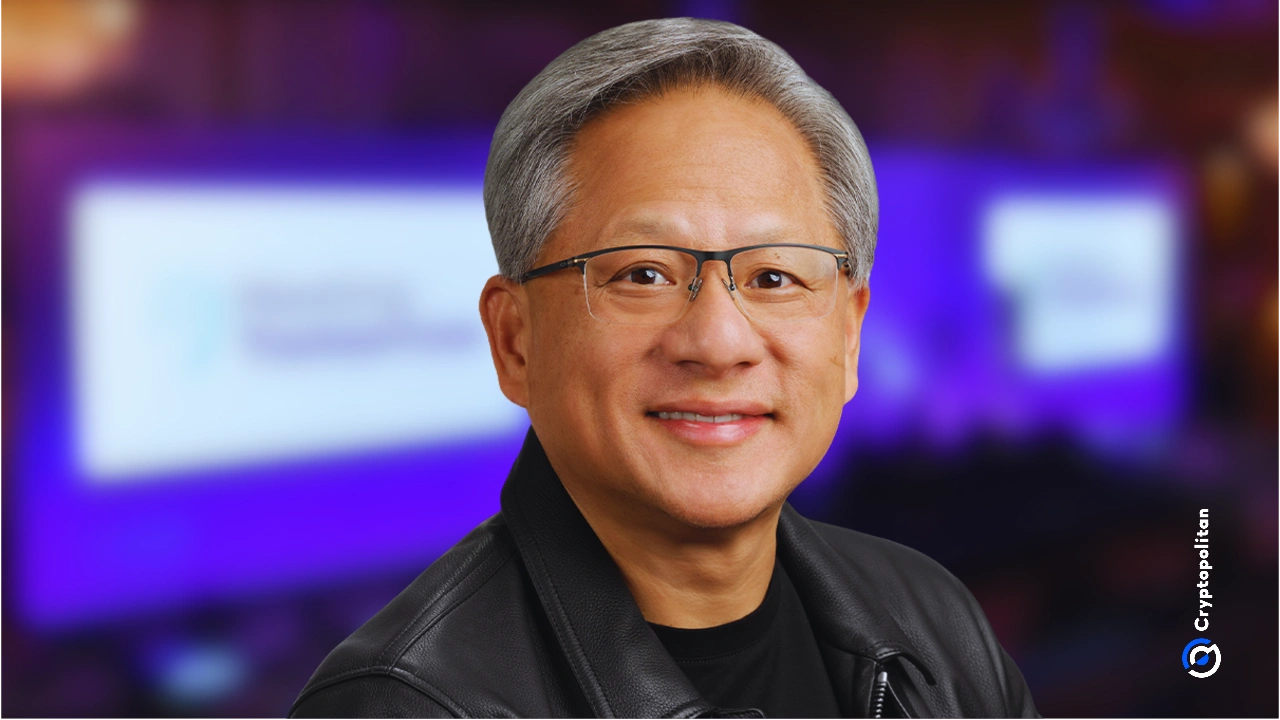Huang’s trip also comes at the same time as the International Supply Chain Expo, a large-scale event supported by the Chinese government, which has previously been graced with the presence of leading global tech figures, such as Apple’s Tim Cook. Huang seeks to speak with government officials at the highest level, including the commerce minister.
Nvidia, the leading supplier of advanced AI chips, is at the heart of intensifying US-China tech tensions. Washington’s broad restrictions on chip sales to China have severely restricted Nvidia’s ability to do business in the world’s second-largest economy.
Huang’s trip is widely interpreted as an attempt to cement Nvidia’s presence in China and show that it is still willing to work with Chinese tech companies amid worsening regulations in the United States.
Nvidia challenges export restrictions
Over the last year, Huang has become one of the few large US tech executives publicly criticizing American policy towards tech exports. He is in the camp that believes Washington’s attempts to curb China’s access to advanced semiconductors as both ineffective and potentially self-defeating by speeding the rise of domestic Chinese rivals like Huawei Technologies Co.
Earlier this year, Huang said restrictions were a “failed strategy” that would damage American innovation and industry. His firm is feeling the squeeze. Nvidia said in May that it’s projecting to lose approximately $8 billion in revenue this quarter, partly due to the US-imposed sanctions.
To adjust, Nvidia is working on a new lineup of lower-end artificial intelligence chips tailored to comply with the most recent US export controls.
These chips will be less powerful but not quite baseline enough to occupy the bottom rung merely, and will instead play in the lucrative fast-growing AI and data center markets in China. Although the details are sketchy, these chips could hit the market as early as this year, according to reports in the Financial Times.
Despite these difficulties, Nvidia has had its share of historic wins. Just recently, it became the first company in the world to reach a market valuation of $4 trillion, buoyed by record global demand for its chips in the wake of the generative AI boom sparked by tools like OpenAI’s ChatGPT.
Washington launches broader crackdown in Southeast Asia
Though Nvidia hopes for a more balanced approach to export regulations, the US government isn’t looking to let up anytime soon. In a new escalation, the Trump administration plans to broaden chip export restrictions to Southeast Asian countries, including Malaysia and Thailand.
These nations have become important parts of the global chip supply chain, especially in assembly and packaging. However, American officials suspect some of the activity may be tied to smuggling or unauthorized resales of prohibited technology into China. The new limitations would seek to close off such pathways, further restricting China’s access to cutting-edge semiconductors.
If implemented, such steps could create tighter borders for companies like Nvidia to navigate the region. For decades, Southeast Asia has been a manufacturing and distribution bridge between American companies and Chinese consumers. Curtailing that flow would bring new bottlenecks and cause Nvidia to reconsider its Asian logistics and partner strategies.
Cryptopolitan Academy: Coming Soon – A New Way to Earn Passive Income with DeFi in 2025. Learn More
This articles is written by : Nermeen Nabil Khear Abdelmalak
All rights reserved to : USAGOLDMIES . www.usagoldmines.com
You can Enjoy surfing our website categories and read more content in many fields you may like .
Why USAGoldMines ?
USAGoldMines is a comprehensive website offering the latest in financial, crypto, and technical news. With specialized sections for each category, it provides readers with up-to-date market insights, investment trends, and technological advancements, making it a valuable resource for investors and enthusiasts in the fast-paced financial world.
